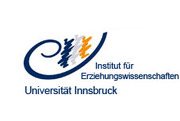Studies on quality and on trainer competences in non-formal education and training
Study 1 "Quality in non-formal education and training in the field of European youth work" by Helmut Fennes and Hendrik Otten (2008)
One of the objectives of the study is to present an inventory of relevant documents published in the past. In case further reading would be appreciated, the html version of the bibliography of the study allows to get easy online access to the documents concerned.
The study is divided into three main parts:
- An introduction, situating the study within the context of European youth work, non formal education and training and the related policy fields
- A chapter on quality in non-formal education and training in the youth field. Based on pedagogical approaches, on practice and on existing concepts of quality it outlines a set of quality standards for non-formal education and training.
- A chapter on a competence profile for trainers in the field of European youth work. Starting with an interpretation of the eight key competences in the context of lifelong learning, the authors develop key dimensions of a professional competence profile for trainers. The main focus lies on intercultural orientation and intercultural discourse.
During several consultations with different players this study was intended to be further advanced so that it may be used as a widely supported consensual reference document for the training of trainers in the future.
However, resources which were available for the first study were not sufficient enough allowing deeper reflections on the question if the eight Key Competencies for Life Long Learning of the European Union can be a supportive framework for a competence profile for trainers in youth work.
Within this 2nd study, the researchers focused on the link between essential and generic key competences trainers should have and the framework of the eight Key Competences:
Study 2 "The eight key competencies for lifelong learning: An appropriate framework within which to develop the competence of trainers on the field of European youth work or just plain politics?" by Hendrik Otten and Yael Ohana (2009)
In the main part of the study, the authors present possible objectives and advisable key contents (in terms of knowledge, attitudes and skills) of an eventual training process in relation to each of the eight key competences.
Subsequently, a concept for a training scheme is proposed that would serve to qualify European level youth work trainers in accordance with the competence profile and the eight key competences for lifelong learning. In order to translate the identified training and learning objectives into a practical training and learning process, H. Otten and Y. Ohana call for a set of basic and minimum framework conditions which are formulated in the conclusions.
All in all, both studies can serve as a basis for a further debate among the actors involved in the topic of qualification and recognition of trainers in the field of European youth work. And they hopefully support all the different organisers of training of and for trainers at European and national level in their reflections on how to develop such kind of training courses.
Both studies can be downloaded on the right side of this page.
Please note that the content of the studies merely express the opinion of the authors and does not necessarily reflect the opinion of the SALTO Training and Co-operation Resource Centre or the official policy of the European Commission.
Downloads
The following downloads are available:



